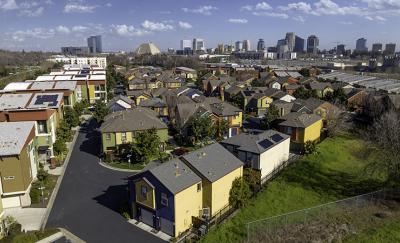Six Ways Organizations Can Prevent and Reduce Burnout


May is Mental Health Awareness Month, a chance to highlight the importance of mental health. Increasingly, workplace mental health and burnout has become part of this conversation, as evidenced by the Surgeon General’s recent report on Addressing Health Worker Burnout. Burnout is defined as a state of emotional, mental and often physical exhaustion brought on by prolonged or repeated stress.
COVID-19 has exacerbated rates of burnout throughout the country. The American Psychological Association’s 2021 Work and Well-being Survey reported that 79% of respondents experienced work-related stress in the previous month, and 59% reported negative impacts of work-related stress, including lack of interest, motivation, or energy, difficulty focusing, and lack of effort at work.
Programs to support individual resiliency and well-being are a common response to mitigating burnout. However, these initiatives put the onus of burnout on the individual, not the broader structures in place that create a culture of overwork and high stress.
Instead, organizations should consider broader organizational culture and climate changes that can improve the environment to reduce burnout:
- Recognize and acknowledge all required tasks and staff responsibilities, and the time it takes to do that work. In some organizations, administrative work or ongoing documentation is required but not included in compensation plans, and often feels like unpaid work to staff.
- Consider ways to maximize staff autonomy and control within their roles. For example, let employees give input on job descriptions and allow flexible or staff-created schedules whenever possible.
- Be transparent about promotions, pay schedules, and benefits. Creating and using set policies for promotions and pay can increase staff perceptions of equity and fairness across an organization. Encourage staff to use their paid time off – they earned it and should use it to fully disconnect from work.
- Cultivate teamwork and shared community. Create avenues for staff to connect and share experiences. It’s especially important that staff are compensated for this time of vital culture-building.
- Create avenues for genuine, meaningful staff appreciation. While monetary rewards may not always be possible, other rewards—such as public and private praise, appreciation events, and professional development—provide additional incentives that are intrinsic to staff motivation and morale.
- Ensure organizational culture changes align with corporate and employee values. Many staff work in organizations with values that align with their own; aligning organizational changes with shared values may help create and sustain motivation for change.
At Abt Global, we recognize the need to change our organizational culture and climate to address burnout, both by implementing strategies to reduce overwork and decrease stress. Abt has implemented several policies and practices to improve our global culture and work climate, especially in the face of the COVID-19 pandemic.
- At the start of the pandemic, Abt developed a flexible work policy, allowing staff to spread hours across work weeks. For example, if a staff member cannot complete their work hours in a given week, they can flex those hours to the next week to avoid taking paid time off.
- When our entire workforce went remote, all staff received a stipend to pay for home office equipment.
- Abt’s return-to-work strategy gave all employees the choice between in-person, remote, or hybrid options. For staff who opt to work from home, Abt provided a stipend for supplemental home-office purchases.
- After a successful pilot, Abt instituted “no meeting Wednesdays.”
- The Wellness@Abt Employee Network Group and Human Resources collaborated to provide more than a dozen events, webinars and other activities focused on supporting employee mental health at work.
To mitigate and reduce high levels of burnout and the impact of the “great resignation,” organizations need to look internally to promote and sustain cultures of wellness, equity, and staff support. These six principles can help companies design meaningful changes to improve employees’ work-life balance and mental health.
Read More

Housing California Annual Conference 2025
Join Abt Global and other leaders for the Housing California 2025 annual conference in Sacramento.

Maternal Health in Rural America: Innovative Solutions
States and communities are developing and implementing innovative approaches to reduce the alarmingly high rate of preventable maternal deaths in the rural U.S.

Managing Opioid Use and Misuse in Older Adults
Older adults are twice as likely as the general population to have pain, and clinicians often rely on opioid treatment. As a result, opioid use, misuse, and opioid use disorder have increased among older adults, who are vulnerable to adverse reactions…

Shelter from the Storm: Addressing the Dual Crisis of Extreme Weather and Homelessness
Homeless response systems need support to strengthen their resilience to extreme weather shocks and the disproportionate harm that extreme weather has on people experiencing homelessness.